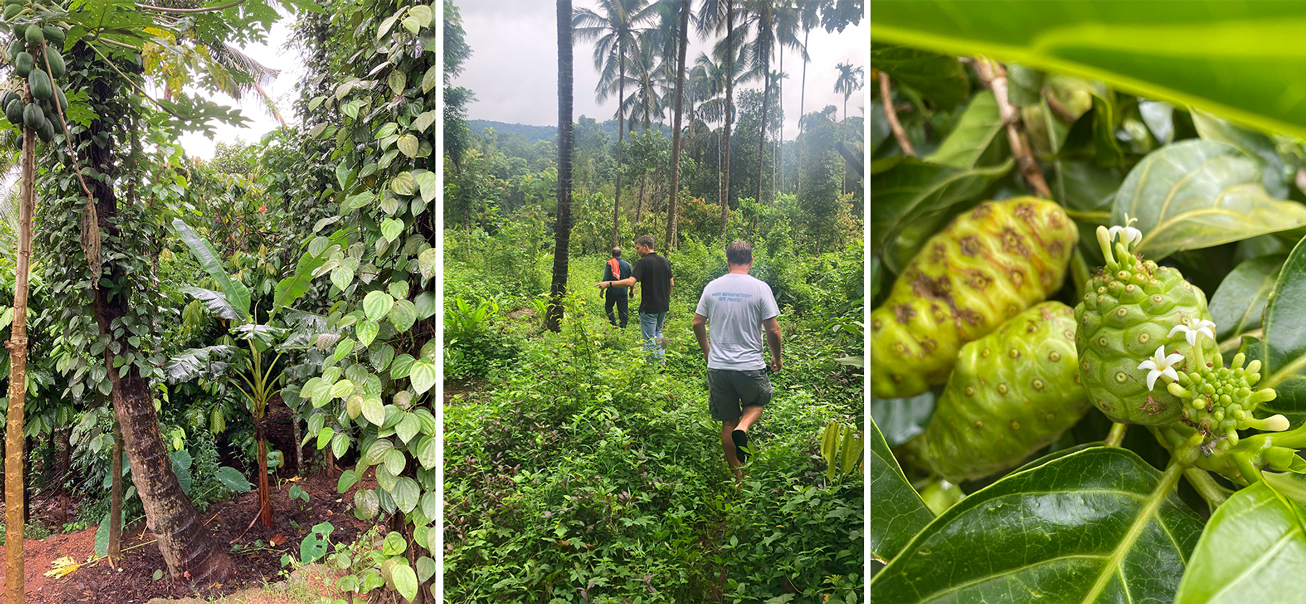Picture above: from left to right: Lijin (Elements), Kathrin and Tom (Pakka), Thomy (Elements) and Ueli (Pakka).
The long-standing partnership with our cashew supplier also includes visits. This doesn't happen every year, most recently in 2016, but this autumn it happened again - Pakka visited Elements in India!
Ueli (Pakka founder) knows Elements and the FTAK – Fairtrade Alliance Kerala and its founder Tomy Mathew vfrom the beginning. He has been to Kerala several times. Tom (CEO Pakka) and I were allowed to accompany him, for us it was the first trip to this region.
The aim of the trip was to maintain personal relationships, to learn new things first hand and to plan the future together. Of course, regular Skype calls and email contacts are part of Pakka's daily routine, but they can by no means replace personal conversations on site at the common table.
My aim of the trip was to get to know the whole story of our products. After all, I have been selling cashew nuts in Switzerland for several years. Of course, I had already read and heard a lot about the work in Kerala, but what it really means for the farmers of the cooperative to grow, harvest and process cashews, I could now see and experience with my own eyes.
Lijin, a long-time employee of Elements, was our guide and translator throughout the tour. He put together our programme and announced us everywhere.
I came back to Zurich from India with many new impressions and experiences. Here are the most frequent questions I was asked in the office and privately after the trip:
How did you like the landscape?
We drove some long distances by car, many of them on narrow tarred roads through hilly countryside with many curves and through small villages again and again. Now and then it rained heavily, the monsoon season was not quite over yet. I was amazed at the lush vegetation - everything was lush green. At first I thought I was in the jungle, but on closer inspection it became clear that all the plants are crops. Everything is cultivated, every spot is made usable. But not like here, where only one fruit is grown per field. Instead, a lot of different things grow very close to each other, so there is a great biodiversity. The farmers thus work in a "biosphere" with extraordinary biodiversity and I became aware on the trip that the people of the FTAK take the protection of their environment very seriously.
Picture above: Numerous different crops thrive side by side and form ecologically valuable agroforestry systems.
What surprised you the most?
We visited a farmer (Sebastian) and his family who supplies his cashews and other crops to FTAK on the very edge of Kerala, way back in the hill country. Sebastian showed us around his fields. Pepper, rubber, coconuts, ginger, jackfruit, cocoa, bananas and cashews grow side by side and on top of each other.
There we stopped, wires hanging in the air in front of us. I asked what their purpose was. Sebastian explained that until recently, elephants from the neighbouring nature reserve came onto his land up to ten times a year to raid coconuts and jackfruit, trampling everything in their path. Now a solar-powered electric fence protects his crops from the elephants. It works similarly to our cattle fences, only it is a little higher.
I didn't expect to be so close to this conflict between man and nature. But I was also impressed by the attitude that the conflict was resolved with relatively simple means and that both sides can continue to live in peace.
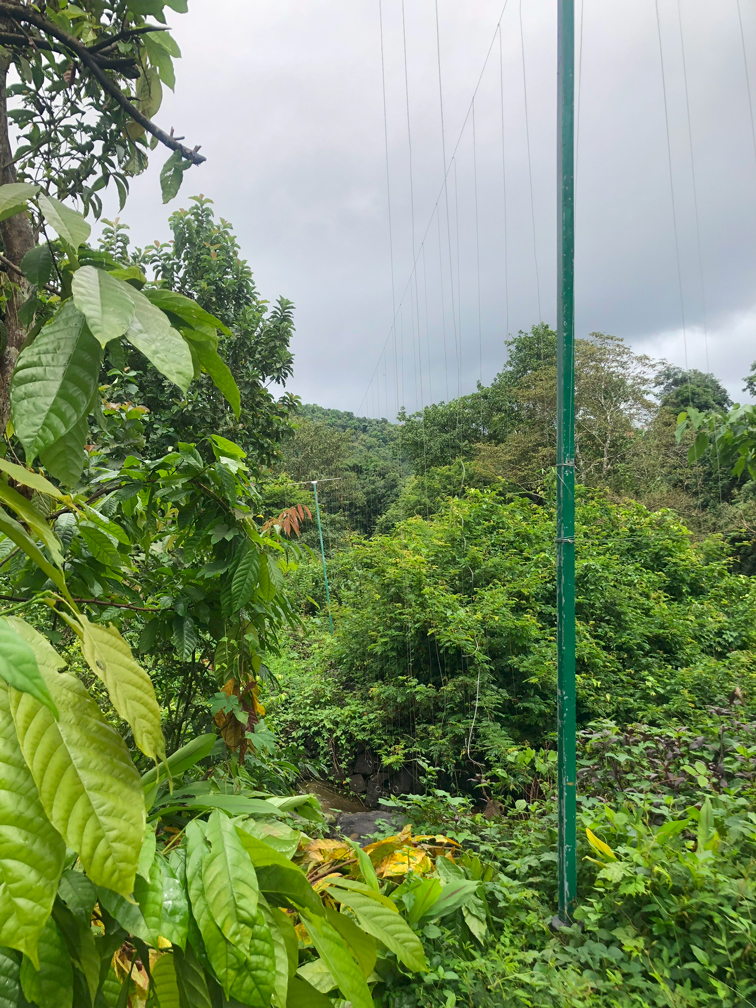 Picture above: The elephant fence is barely visible in the dense greenery, yet it provides effective and animal-friendly protection from wild elephants, whose strength and size can destroy the smallholder farmers' cultivation areas.
Picture above: The elephant fence is barely visible in the dense greenery, yet it provides effective and animal-friendly protection from wild elephants, whose strength and size can destroy the smallholder farmers' cultivation areas.
What was the most delicious thing?
We ate very well the whole time; such delicious curries, whether at the roadside or in the restaurant. But unforgettable were the freshly cracked, still warm cashews in the processing factory. Still warm because they are heated at the very end of the process to remove the moisture and make them crunchier.
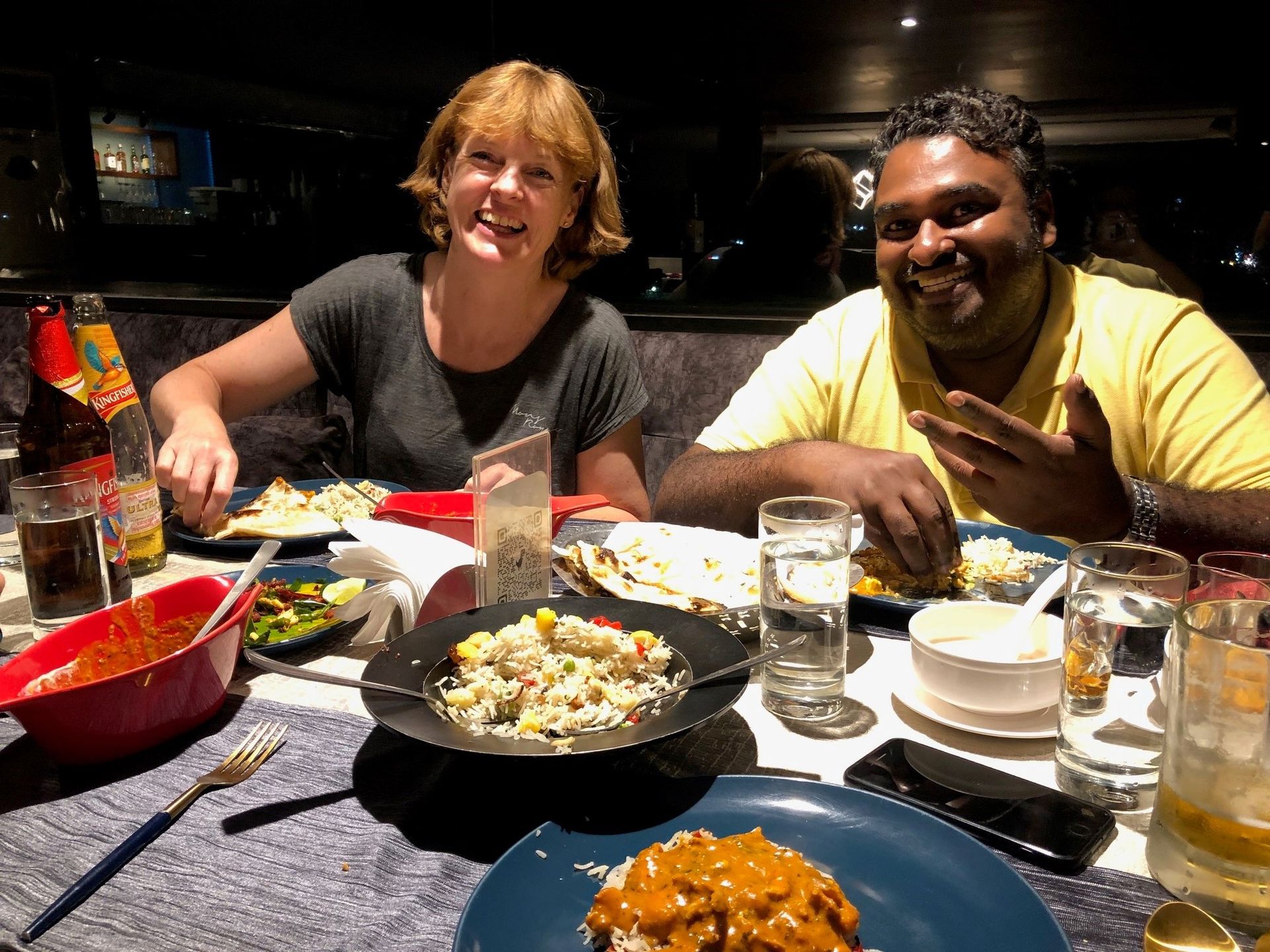 Picture above: from left to right: Kathrin (Pakka) and Lijin (Elements).
Picture above: from left to right: Kathrin (Pakka) and Lijin (Elements).
What impressed you the most?
We met a lot of very motivated and well-educated young people who are very committed to their work and want to get ahead. But many of these people are also considering emigration, a big challenge for the future of the Kerala region and the whole of India.
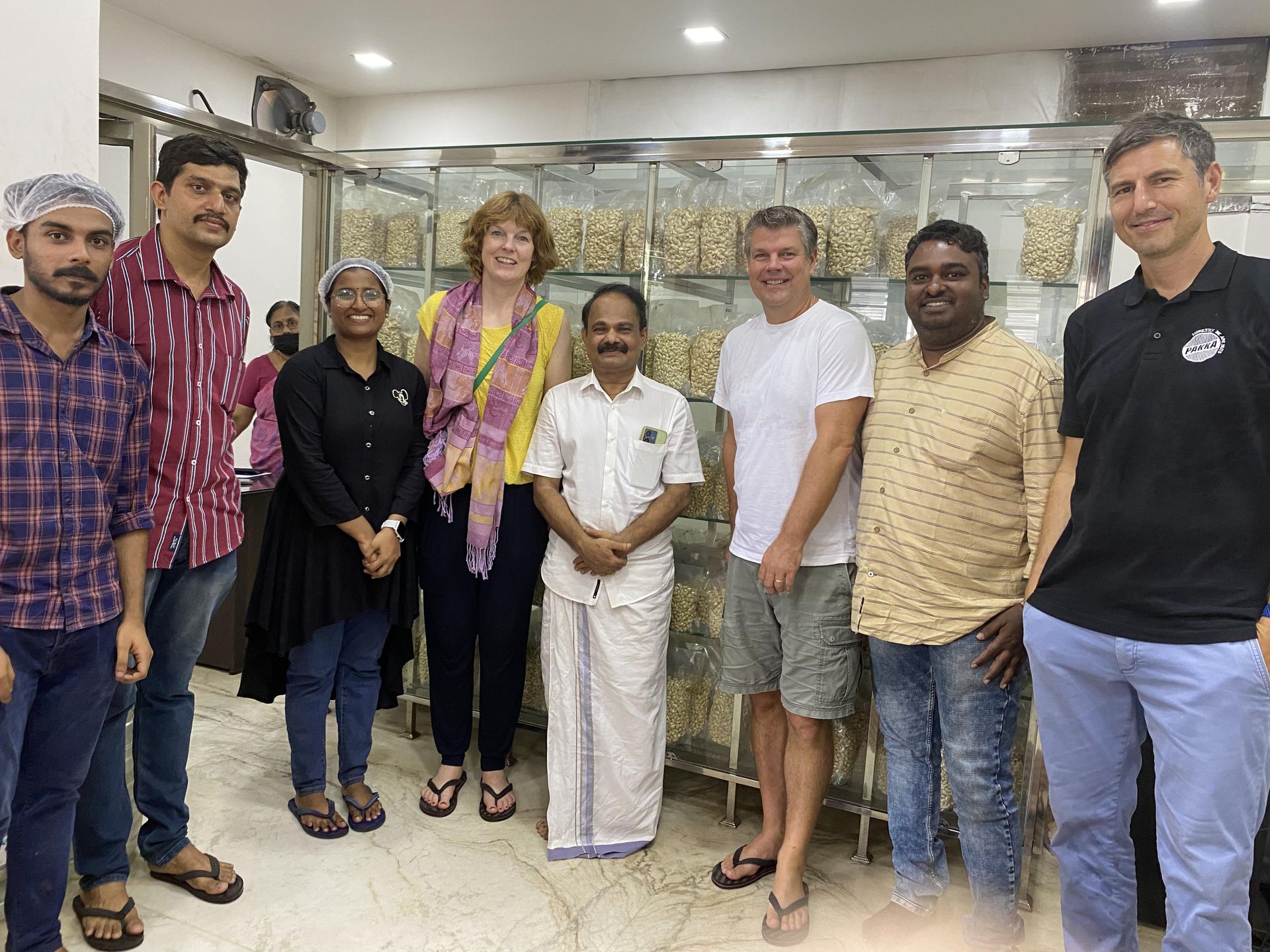 Picture above: Group photo of the cashew processing factory.
Picture above: Group photo of the cashew processing factory.
What did you not expect at all?
I have always felt very comfortable and welcome in India. The hospitality is palpable. But I have to admit that I also stood out a bit with my slightly red hair and freckles. So our group was not infrequently stared at, but only to be smiled at in a friendly way after the first surprise. And then the children never stopped waving, pure joy!
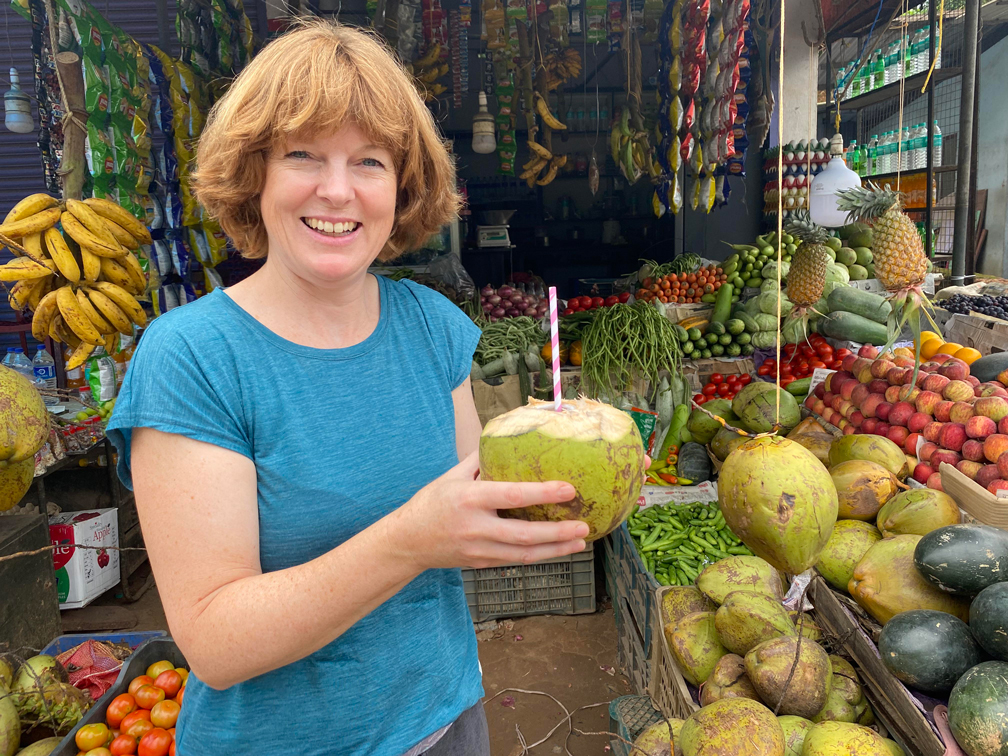
For Pakka AG, Kathrin Engel, Sales
